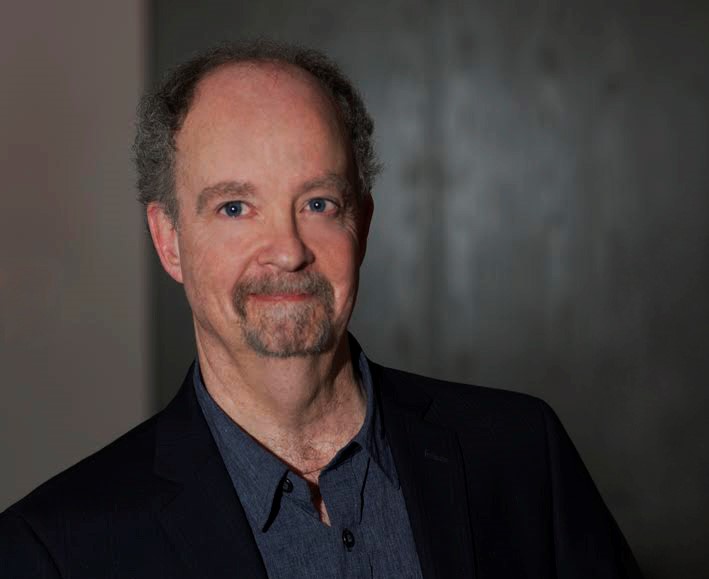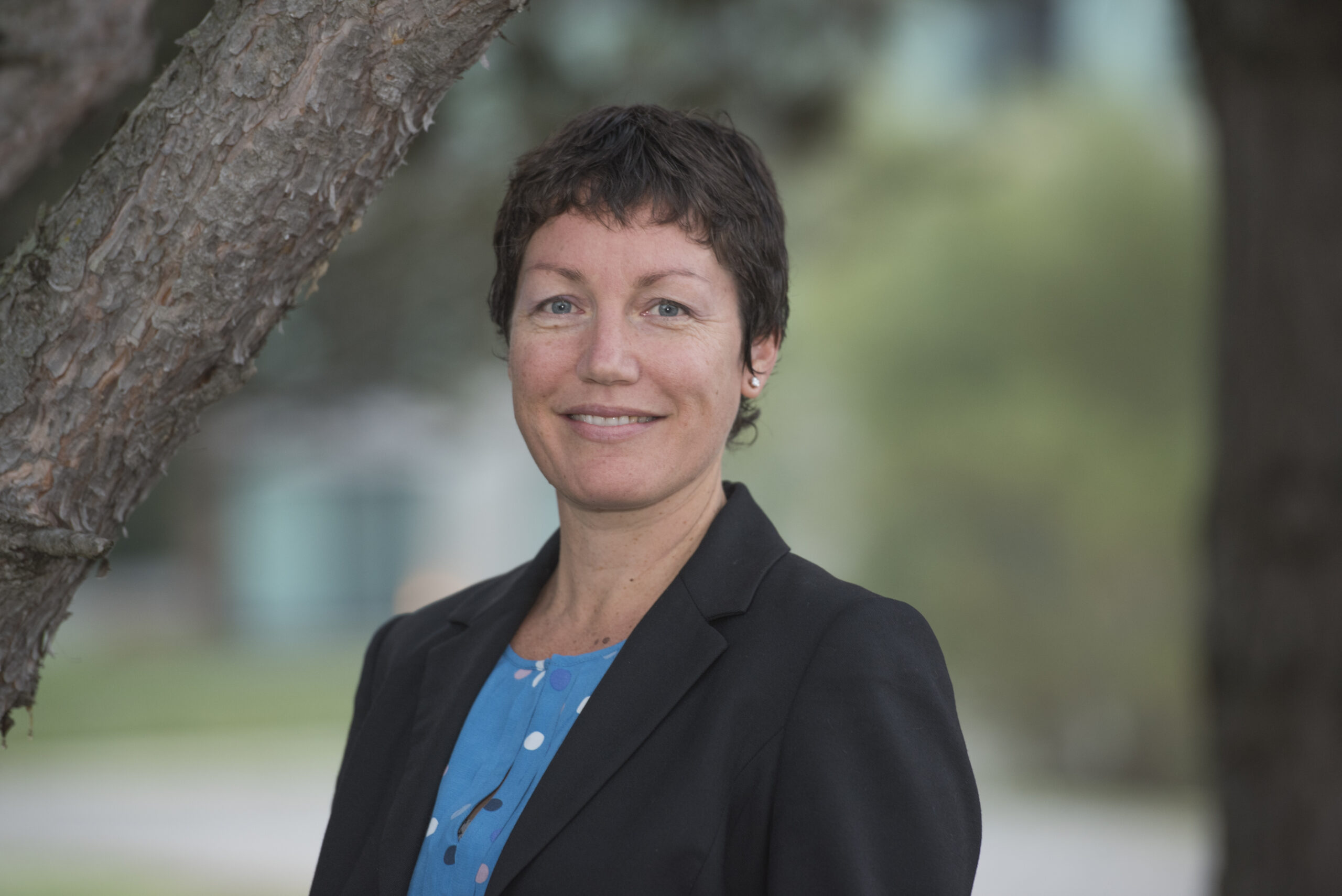McGill’s Department of Physics professors Charles Gale and Daryl Haggard received medals from the Canadian Association of Physics (CAP) today. The 2022 CAP Medal for Lifetime Achievement in Physics is awarded to Gale in recognition of his profound contributions as a world leader in high-energy nuclear science, and in the physics of strongly interacting matter under extreme conditions of temperature and density. The 2022 CAP Herzberg Medal is awarded to Daryl Haggard, in recognition of her leadership role in the development of multimessenger astronomy, and the ground-breaking discovery of the electromagnetic signal accompanying gravitational waves from colliding neutron stars.
“The awarding of the CAP Medal for Lifetime Achievement in Physics to Professor Charles Gale and the CAP Herzberg Medal to Professor Daryl Haggard confirms what is evident to all of us in the Faculty of Science, and indeed, the University: these researchers demonstrate special talents in developing solutions to fundamental, high impact problems,” said Bruce Lennox, Dean of Science. “My congratulations are extended to them both.”
Chair of the Department of Physics Sangyong Jeon said that “Professor Charles Gale’s pioneering work spanning decades in nuclear physics has made an impact in a variety of fields and shaped the trajectories of an emerging generation of scientists. Professor Haggard’s contributions to research on supermassive black holes has changed the way we observe the Universe. The Department is extremely proud of their many accomplishments.”
The CAP Medal for Lifetime Achievement in Physics is awarded for distinguished service to physics over an extended period, and for recent outstanding achievements. This annual medal was introduced in 1956. The CAP Herzberg Medal recognizes significant achievement in any field of research by an early-career Canadian physicist. The annual CAP Herzberg Medal was introduced in 1970.
A lifetime of exploration in nuclear science

Gale has made many original contributions to the knowledge of the dense nuclear matter equation of state and to transport theory in nuclear reactions at high energies. He is well known for his pioneering work on the emission of electromagnetic radiation from the plasma created in the relativistic collisions of heavy nuclei, and for his studies of jets propagating in strongly interacting media. Gale has also co-authored an authoritative textbook on field theories at finite temperature, which is the standard reference in its field and used in the study of astrophysics and nuclear and particle physics. He has mentored and trained many students and postdoctoral fellows who have since gone on to make an impact in academia, industry, and in government.
“I am honoured to receive the CAP Medal for Lifetime Achievement in Physics, and I thank my mentors, students, postdocs, collaborators and colleagues,” said Gale. “From all of them I have learned a lot and I express my deep gratitude to all members of my family for their unwavering support.”
Gale is a Distinguished James McGill Professor and in 2020 was elected a Fellow of the Royal Society of Canada. He is also a Fellow of the American Physical Society and of the American Association for the Advancement of Science. He has won a Killam Research Fellowship, a Humboldt Research Award, the CAP-CRM Prize in Theoretical and Mathematical Physics, and the CAP-TRIUMF Vogt Medal for Contributions to Subatomic Physics.
Internationally recognized research star honoured
Haggard is a world-renowned expert in observational studies of black holes, including Sagittarius A*, the supermassive black hole in the Milky Way Galaxy. She uses radio, submillimeter, infrared, and X-ray telescopes to investigate exotic black hole environments, where strong gravity plays a key role. She is a contributor to the first, ground-breaking direct images of supermassive black holes with the Event Horizon Telescope (EHT) and other elite observatories on the ground and in space. She is also internationally known for her contributions to multi-messenger astrophysics, including the first joint discovery of X-ray and gravitational wave emission from the collision of two neutron stars detected by the Laser Interferometer Gravitational-Wave and Virgo Observatories.

“I am honoured to receive the 2022 CAP Herzberg Medal,” said Haggard. “Combining photons and gravitational waves offers new insights into the secrets of black holes and neutron stars. I am thrilled to join in these exciting discoveries. Thank you to my nominators and reference writers, to everyone at McGill, and always to my wonderful family.”
Haggard has worked extensively to improve diversity, equity, and inclusion in the sciences. She has served on national committees for equity in STEM both in Canada and the US, including the American Astronomical Society’s Women in Astronomy Committee and the Canadian Astronomical Society’s Equity and Inclusivity Committee.
Prior to joining the McGill Department of Physics and the McGill Space Institute in 2015, Haggard held a prize postdoctoral fellowship at Northwestern University’s Center for Interdisciplinary Exploration and Research in Astrophysics, and a faculty position in the Department of Physics and Astronomy at Amherst College. Her work has been honoured by a prestigious CIFAR Azrieli Global Scholarship, a Canada Research Chair in Multi-messenger Astrophysics (Tier 2), the 2020 McGill Principal’s Prize for Emerging Researchers, election to the Royal Society of Canada College of New Scholars, Artists, and Scientists in 2021, and the Royal Society of Canada’s 2022 Rutherford Memorial Medal in Physics. As a part of her collaborative work with the EHT, Haggard is co-recipient of the 2021 Group Achievement Award (A) from the United Kingdom’s Royal Astronomical Society and the 2020 Breakthrough Prize in Fundamental Physics.
A series of virtual plenary medal talks will be organized to honour the 2022 medal recipients. The talk schedule will be posted on the CAP’s website and notification of each talk will be issued once arranged. The Canadian Association of Physicists, founded in 1945, is a professional association representing over 1600 individual physicists and physics students in Canada, the U.S. and overseas, as well as several corporate, institutional, and departmental Members. In addition to its learned activities, the CAP, through its charitable arm – the CAP Foundation, also undertakes activities intended to encourage students to pursue a career in physics.
